
Science and Synaeda
Research
and Science
Scientific research, discovering new treatment methods and thereby increasing the chances of recovery, is an important part of Synaeda.
Several scientists are active within our teams, conducting scientific research in collaboration with Brainclinics and others. Brainbased therapy, or therapy based on the workings of the brain of the specific patient, is gaining ground. Synaeda is leading the way when it comes to researching and applying these therapies.
Our research
Two major research projects and a number of additional studies are underway within Synaeda.
With a brain measurement we try to improve the treatment of depression. Because our research shows that an EEG measurement helps to address depression symptoms in more people, we offer it when depression is diagnosed (Fonteinland, Drachten and Heerenveen locations).
In addition, we are trying to better apply the innovative treatment rTMS in depression (repetitive transcranial magnetic stimulation) by seeing which form of rTMS suits which patient.
literature
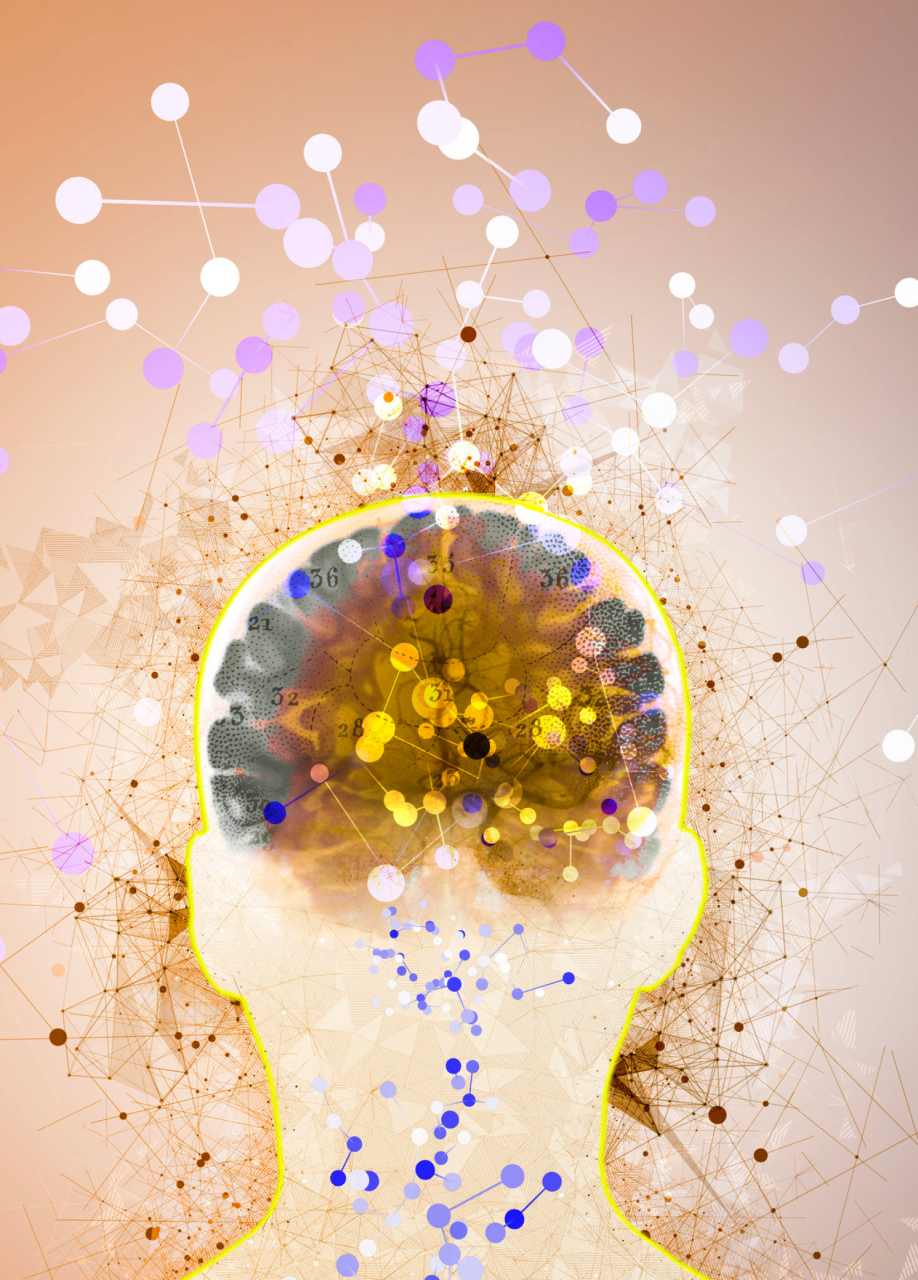
Scientific publications
2025
E.S.A. Dijkstra, R. Rouwhorst, L. Zwienenberg, I. van Oostrom, H. van Dijk, A.T. Sack & M. Arns. (2025). TMS-induced heart-brain coupling associated with early clinical response in depression. Volume 18, Issue 6, p1744-1746. https://www.brainstimjrnl.com/article/S1935-861X(25)00336-5/fulltext
2024
H.T.S. Voetterl, A.T. Sack, S. Olbrich, S. Stuiver, R. Rouwhorst, A. Prentice, D.A. Pizzagalli, N. van der Vinne, J.A. van Waarde, M. Brunovsky, I. van Oostrom, B. Reitsma, J. Fekkes, H. van Dijk & M. Arns (2023). Alpha peak frequency based Brainmarker-I as a method to stratify to pharmacotherapy and brain stimulation treatments in depression. Nature Mental Health, Volume 1, 1023-1032, https://www.nature.com/articles/s44220-023-00160-7
2023
A. Prentice, Y. Kolken, C. Tuttle, J. van Neijenhof, R. Pitch, I. van Oostrom, V. Kruiver, J. Downar, A.T. Sack, M. Arns & N. van der Vinne (2023). 1Hz right orbitofrontal TMS benefits depressed patients unresponsive to dorsolateral prefrontal cortex TMS. Brain Stimulation, volume 16, issue 6, P1572-1575, https://doi.org/10.1016/j.brs.2023.10.005
A. Prentice, A.R. Barreiros, N. van der Vinne, S. Stuiver, H. van Dijk, J.A. van Waarde, M. Korgaonkar, A.T. Sack & M. Arns (2023). Rostral Anterior Cingulate Cortex Oscillatory Power Indexes Treatment-Resistance to Multiple Therapies in Major Depressive Disorder. Neuropsychobiology, 82(6):373-383. https://doi.org/10.1159/000533853
Alexander T. Sack, Jasmina Paneva, Tara Küthe, Eva Dijkstra, Lauren Zwienenberg, Martijn Arns, Theresa Schumann: Target engagement and brain state dependence of transcranial magnetic stimulation: implications for clinical practice. Biological Psychiatry 2023. doi: doi.org/10.1016/j.biopsych.2023.09.011
https://www.biologicalpsychiatryjournal.com/article/S0006-3223(23)01571-8/fulltext
Zwienenberg L, van Dijk H, Enriquez-Geppert S, van der Vinne N, Gevirtz R, Gordon E, Sack A, T, Arns M: Heartbeat-Evoked Potential in Major Depressive Disorder: A Biomarker for Differential Treatment Prediction between Venlafaxine and rTMS? Neuropsychobiology 2023. doi: 10.1159/000529308 https://www.karger.com/Article/FullText/529308
E. Dijkstra, H. van Dijk, F. Vila-Rodriguez, L. Zwienenberg, R. Rouwhorst, J.P. Coetzee, D.M. Blumberger, J. Downar, N. Williams, A.T. Sack & M. Arns. (2023). Transcranial Magnetic Stimulation-induced Heart-Brain-Coupling: Implications for site selection and frontal thresholding. Biological Psychiatry: Global Open Science. https://doi.org/10.1016/j.bpsgos.2023.01.003
2022
Rouwhorst, R., Oostrom, I. van, Dijkstra, E., Zwienenberg, L., Dijk, H. van, & Arns, M. (2022). Vasovagal syncope as a specific side effect of DLPFC-rTMS: A frontal-vagal dose-finding study. Brain Stimulation, 15(5), 1233–1235. https://doi.org/10.1016/j.brs.2022.08.015
Meijs, H., Prentice, A., Lin, B. D., De Wilde, B., Van Hecke, J., Niemegeers, P., van Eijk, K., Luykx, J. J., & Arns, M. (2022). A polygenic-informed approach to a predictive EEG signature empowers antidepressant treatment prediction: A proof-of-concept study. European neuropsychopharmacology : the journal of the European College of Neuropsychopharmacology, 62, 49–60. https://doi.org/10.1016/j.euroneuro.2022.07.006
2021
Folkersma, W., Veerman, V., Ornée, D.A., Oldehinkel, A.J., Alma, M.A., Bastiaansen, J.A. (2021). Patients' experience of an ecological momentary intervention involving self-monitoring and personalized feedback for depression. Internet Interventions, volume 26, 2021, 100436. https://doi.org/10.1016/j.invent.2021.100436.
Van der Vinne, N., Vollebregt, M. A., Rush, A.J., Eebes, M., van Putten, M. J. A. M., & Arns, M. (2021). EEG biomarker informed prescription of antidepressants in MDD: a feasibility trial. European Neuropsychopharmacology, 44, 14-22 https://doi.org/10.1016/j.euroneuro.2020.12.005
Zwienenberg, L., Iseger, T. A., Dijkstra, E., Rouwhorst, R., Dijk, H. van, Sack, A. T., & Arns, M. (2021). Neuro-cardiac guided rTMS as a stratifying method between the ‘5cm’ and ‘BeamF3’ stimulation clusters. Brain Stimulation, 14(5), 1070–1072. https://doi.org/10.1016/j.brs.2021.07.005
2019
Van der Vinne, N., Vollebregt, M. A., Boutros, N. N., Fallahpour, K., van Putten, M. J. A. M., & Arns, M. (2019). Normalization of EEG in depression after antidepressant treatment with sertraline? A preliminary report. Journal of Affective Disorders, 259, 67-72. https://doi.org/10.1016/j.jad.2019.08.016
Van der Vinne, N., Vollebregt, M. A., van Putten, M. J. A. M., & Arns, M. (2019). Stability of frontal alpha asymmetry in depressed patients during antdepressant treatment. NeuroImage: Clinical, 24. https://doi.org/10.1016/j.nicl.2019.102056
2017
Van der Vinne, N., Vollebregt, M. A., van Putten, M. J. A. M., & Arns, M. (2017). Frontal alpha asymmetry as a diagnostic marker in depression: Fact or fiction? A meta-analysis. NeuroImage: Clinical, 16, 79-87. https://doi.org/10.1016/j.nicl.2017.07.006
2015
de Beurs, E., Barendregt, M., de Heer, A., van Duijn, E., Goeree, B., Kloos, M., Kooiman, K., Lionarons, H., & Merks, A. (2016). Comparing Methods to Denote Treatment Outcome in Clinical Research and Benchmarking Mental Health Care. Clinical Psychology and Psychotherapy, 23(5), 308-318. https://doi.org/10.1002/cpp.1954
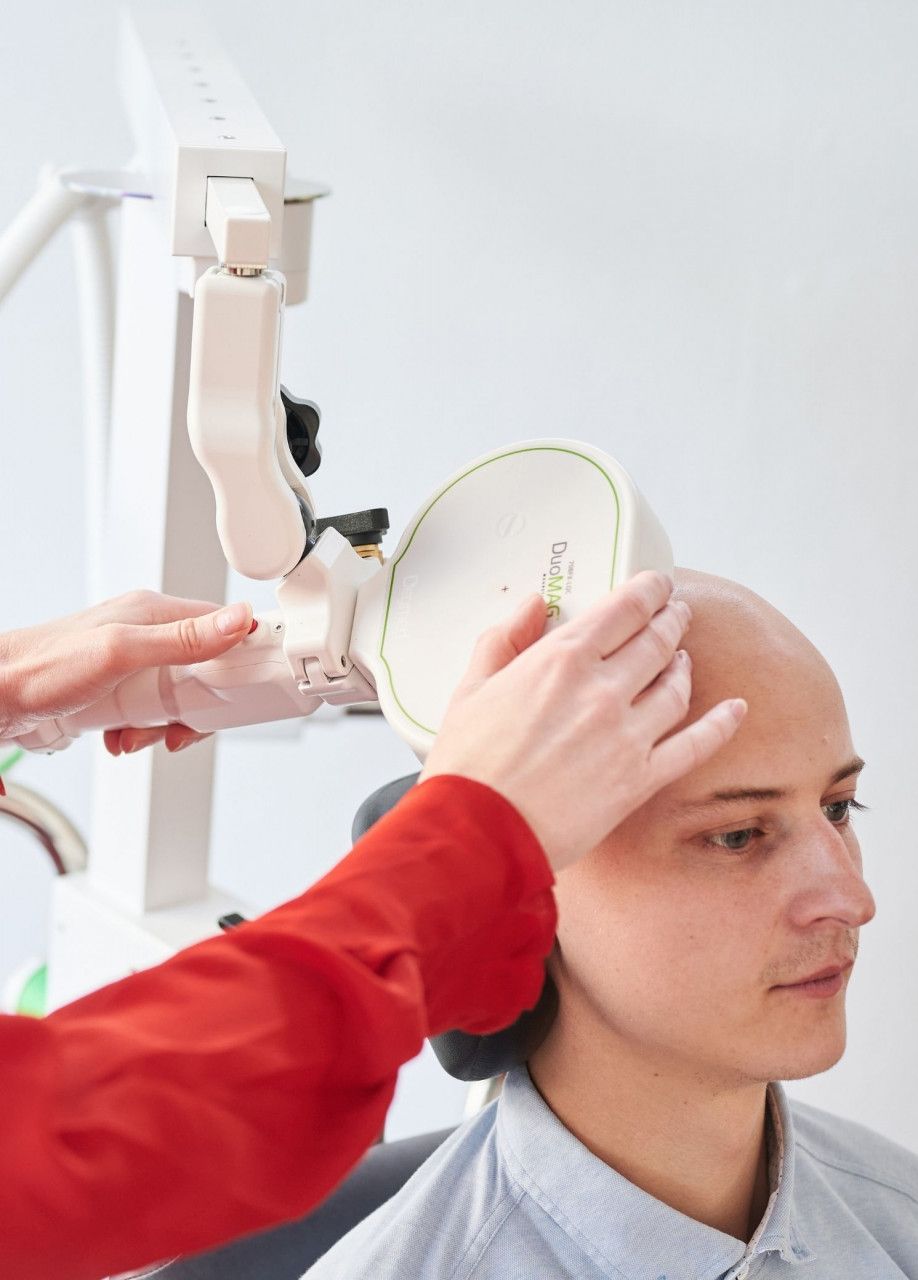

Presentations
2024
Zwienenberg: Heart-Brain Coupling: Frontal Excitability Threshold & Qualitative Differences for Shorter Pulses. European Conference of Brain Stimulation, Lissabon, Portugal, April 2024.
2022
Zwienenberg: rTMS-induced heart-brain coupling: implications for site selection and frontal thresholding? BeNe Brain Stimulation Symposium, Hasselt, België.
Prentice: EEG-biomarkers gericht op de predictie van behandelsucces en op het meten van hardnekkigheid van depressie. Symposium RGOC netwerk Angst en Stemming, Groningen, Nederland
2021
Zwienenberg: Neuro-cardiac guided rTMS voor depressie: stratificatie tussen ‘5cm’ en ‘BeamF3’ locatie. Rob Giel Onderzoekscentrum & Netwerk Stemming en Angst symposium, Groningen, The Netherlands.
Zwienenberg: Heartbeat evoked potential in MDD: A biomarker for differential treatment prediction between venlafaxine and rTMS? Brain Stimulation, Charleston, South Carolina, USA.
2019
Van der Vinne: Temporal Development of Depression Biomarkers from the iSPOT- D study: State or Trait. 20th biennial International Pharmaco-EEG Society IPEG Meeting, Zürich. Neuropsychobiology 2019;77(3):S2-3.
Van der Vinne: EEG-biomarkers in depressiebehandeling en implementatie in een reguliere gezondheidszorginstelling. Behandeling onder de loep!, NedKAD-conferentie, Amersfoort.
2018
Van der Vinne: Temporal Development of Depression Biomarkers From the iSPOT-D Study: State or Trait. 73rd Annual Meeting Society of Biological Psychiatry SOBP, New York. Biological Psychiatry 2018;83(9):136.
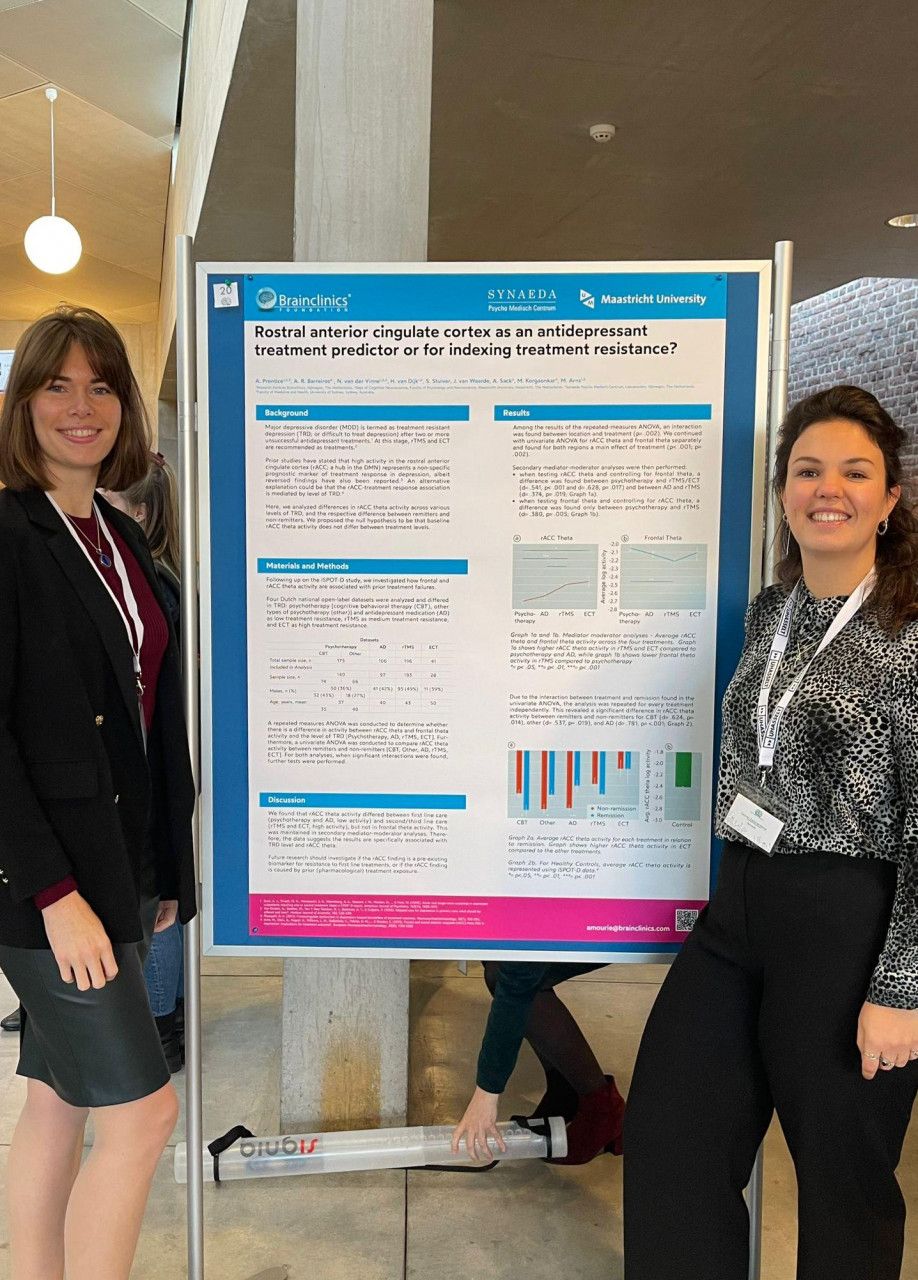
Posterpresentations
2023
A. Prentice, Y. Kolken, C. Tuttle, J. van Neijenhof, R. Pitch, I. van Oostrom, V. Kruiver, J. Downar, A.T. Sack, M. Arns & N. van der Vinne (2023). Depression improvement with right orbitofrontal TMS after unsuccessful DLPFC TMS. BeNe Symposium Nijmegen, november 2023. research-posters (eerste poster)
L. Zwienenberg, E. Dijkstra, H. van Dijk, R. Rouwhorst, V. Middleton, K. Wendt, H. Hutchinson, J. Downar, A.T. Sack, C. Stagg & M. Arns. (2023). Heart-Brain Coupling TMS: from Motor Threshold to Frontal Threshold & the Effects of Different Pulse Parameters. BeNe symposium, Nijmegen, November 2023. research-posters (tweede poster)
2022
Prentice: Rostral anterior cingulate cortex as an antidepressant treatment predictor or for indexing treatment resistance? BeNe Brain Stimulation Symposium, Hasselt, België.
2021
Prentice, A., Meijs, H., van der Vinne, N., van Wingen, G., Blumberger, D., Daskalakis, Z., ... & Arns, M. (2021). Investigating EEG biomarker specificity to combined rTMS with psychotherapy: Psychotherapy, rTMS or sham? A blinded prediction study. Brain Stimulation: Basic, Translational, and Clinical Research in Neuromodulation, 14(6), 1601.
Van der Vinne, N., van Oostrom, I., Arns, M. (2021). Right orbitofrontal TMS as a fallback after unsuccessful DLPFC rTMS? Brain Stimulation, 14, 6, 1687-1688. https://doi.org/10.1016/j.brs.2021.10.319
2016
Van der Vinne, N., Vollebregt, M., Arns, M. (2016). Frontal alpha asymmetry in depression: fact or fiction? A meta-analysis. 19th biennial IPEG Meeting, October 2016, Nijmegen. For abstract see: Neuropsychiatric Electrophysiology 2016;2(8):A85.
Dissertations
Nikita van der Vinne
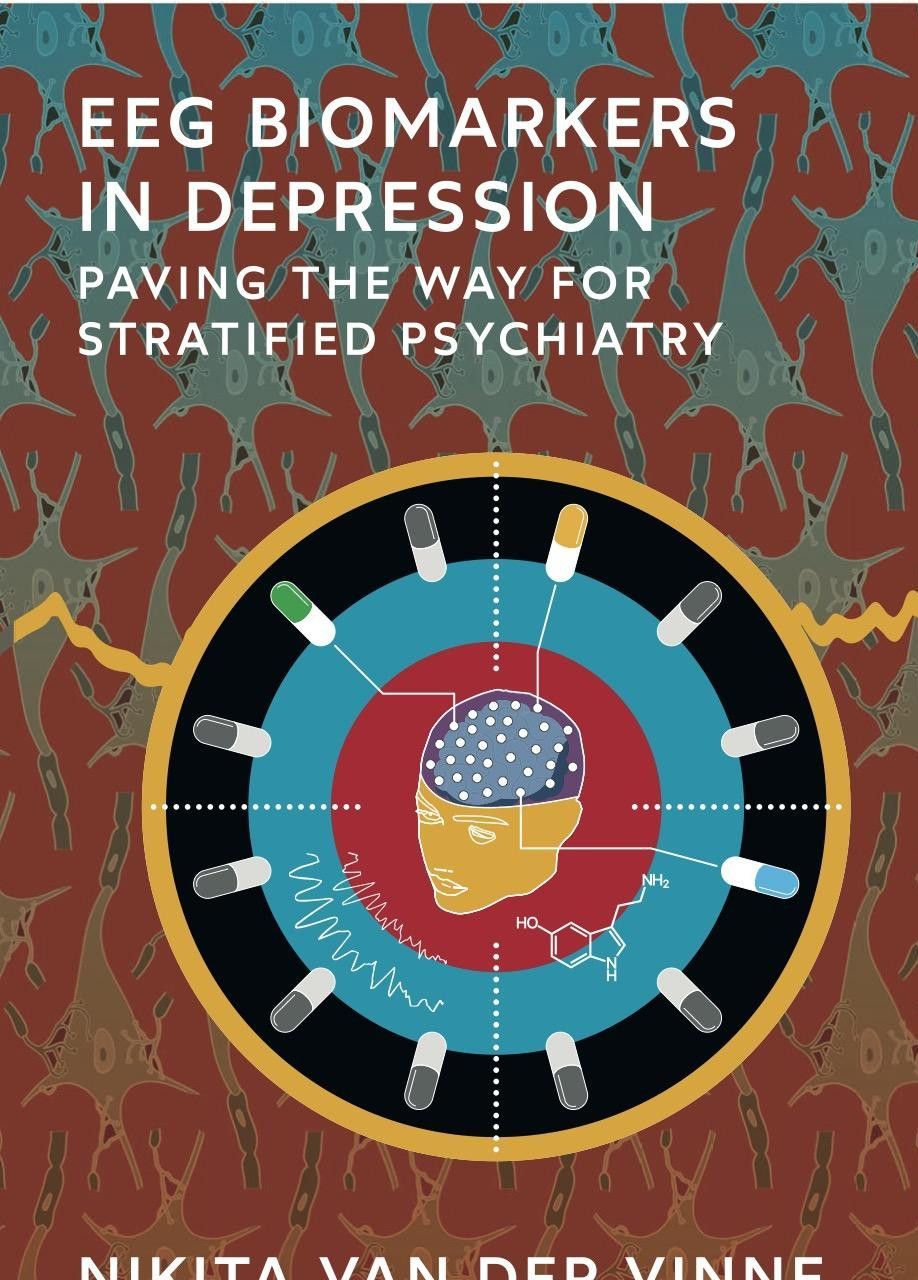
With the goal of improving treatment outcomes for patients with depression, Nikita (head of the research department at Synaeda) describes the first steps toward implementing an EEG biomarker-informed protocol. We zoom in on detailed characteristics of biomarkers that proved to be promising. We aim to use automated processes for fast, professional EEG assessments. We developed a protocol in which all knowledge about biomarker-informed antidepressant prescribing was implemented and conducted a feasibility test. We also compare the outcomes of the protocol with the results of a control group.
Hannah Meijs
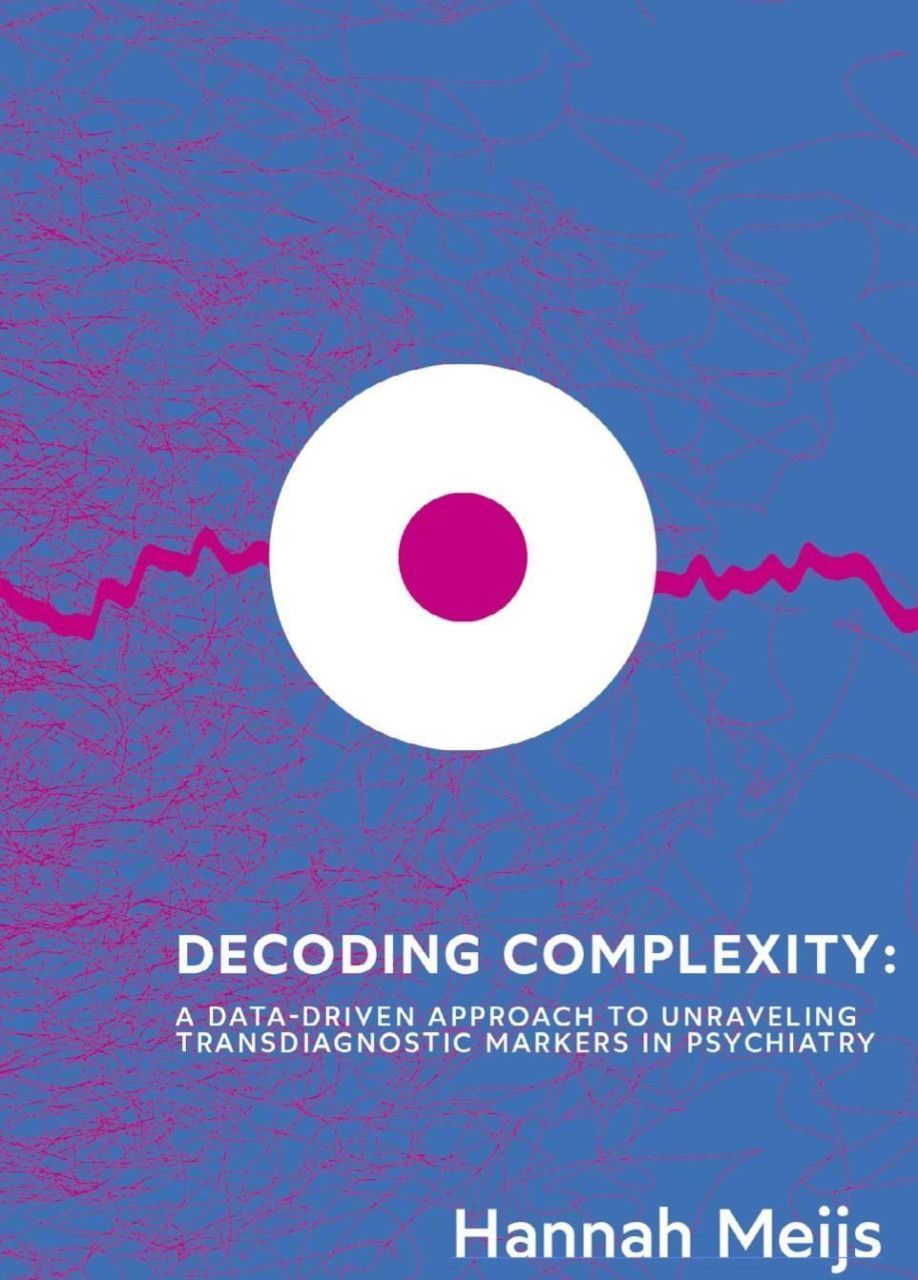
Hannah’s (psychiatrist at our Arnhem (and Sport) location) dissertation focuses on identifying transdiagnostic markers from EEG data (electroencephalography) to predict treatment response in MDD and ADHD. For this, she used large and heterogeneous datasets to capture a wide range of EEG features. Using a data-driven data-reduction method at the source level of activity, several independent EEG-derived functional brain networks were extracted. Polygenic association analysis was applied to select biologically plausible networks that may predict treatment outcomes. The results of the proof-of-concept study and the follow-up study revealed, respectively, a slow wave network and a posterior alpha network related to age, with sex-specific and medication-specific predictive potential for treatment outcomes in MDD, thereby demonstrating the stratification potential of this innovative approach.
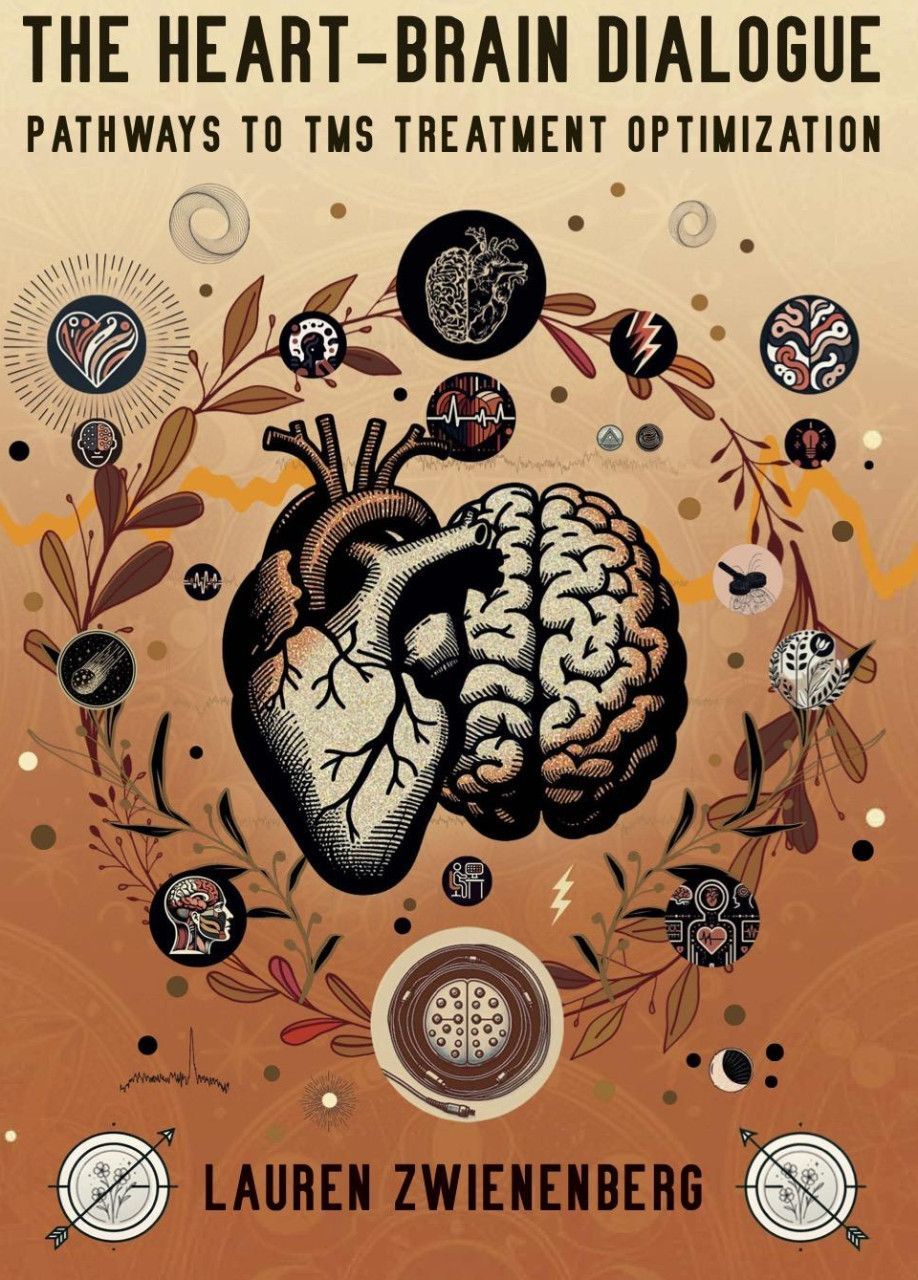
Lauren Zwienenberg
Lauren’s (clinical psychologist at Synaeda Fonteinland) dissertation has the overarching goal of improving antidepressant treatment, with a focus on TMS for depression. Stratified psychiatry, making use of biomarkers, shows potential as a method to tailor treatment indications to the individual, and implementation in clinical practice appears feasible. The heart–brain connection provides valuable information for this purpose and can also be used to optimize treatment parameters and gain insight into underlying mechanisms in depression and antidepressant treatments. By using biomarkers in stratified psychiatry, we bridge the gap between research and real-world applications, directly benefiting patients.
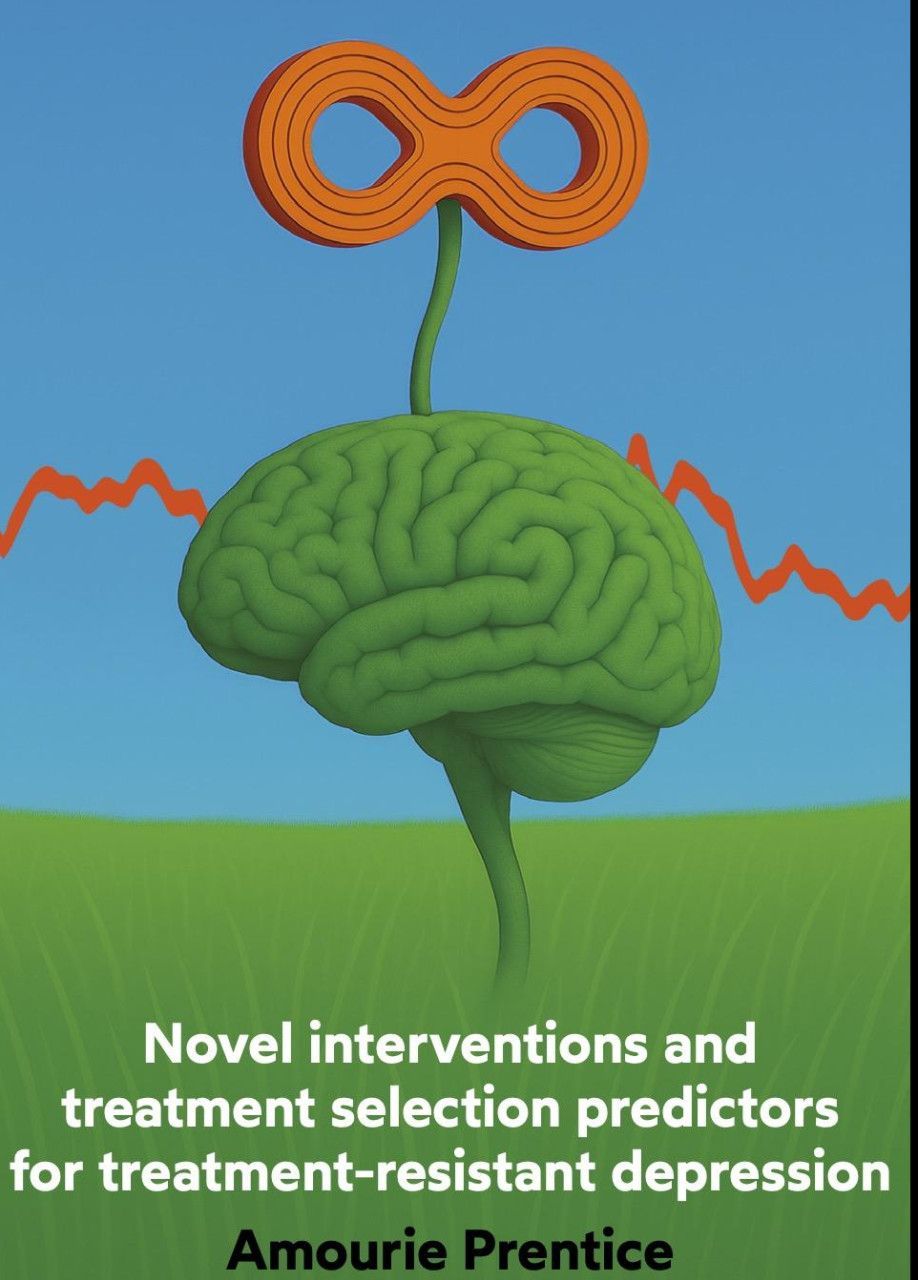
Amourie Prentice
Amourie (Synaeda Heerenveen, now living and working in Canada) investigated treatment-resistant depression. This is a major global health problem, with a significant number of people not responding to conventional therapies such as psychotherapy and pharmacotherapy. This persistent lack of effectiveness highlights the need for innovative strategies and a better understanding of the mechanisms underlying treatment resistance. TRD (or DTD) is an example of the complexity of this condition and underscores the urgency of tailored interventions.
More information?
Would you like to know more about scientific research at Synaeda? Please email our researchers!